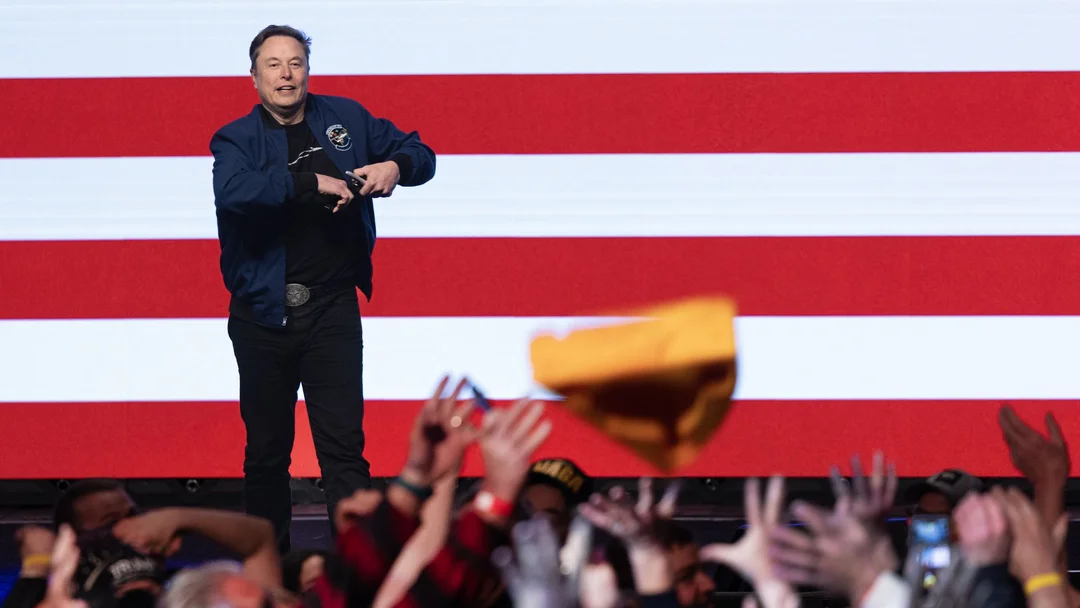
Trump Signals Imminent Departure Of Elon Musk As White House Adviser
In a development that could reshape the current administration’s approach to government reform, President Donald Trump announced Thursday that Elon Musk, one of his most influential yet unorthodox advisers, is likely to depart in just a few months. This anticipated exit underscores both the scale of Musk’s impact within Washington and the challenges the administration faces in sustaining its aggressive disruption style.
Speaking candidly aboard Air Force One, Trump praised Musk as “fantastic,” emphasizing admiration for the billionaire’s commitment but acknowledging practical limitations given Musk’s extensive business empire. “I want him to stay as long as possible,” Trump explained, “but there’s going to be a point where he has to leave.”
Since early this year, Musk has headed the Department of Government Efficiency (DOGE), a task force dedicated to radically downsizing federal bureaucracy and slashing costs. Under his stewardship, DOGE disrupted traditional Washington protocols, sending Musk allies across agencies to terminate contracts, access data, and enforce reforms. Originally designed to advise alongside biotech entrepreneur Vivek Ramaswamy, who later left to run for Ohio governor, DOGE soon operated within the administration, becoming a symbol of outsider-led shakeups.
Yet despite ambitious goals, including Musk’s earlier assertion that they would reduce the deficit by $1 trillion, progress remains murky. DOGE’s own calculations — some criticized as exaggerated — suggest the effort is far from meeting this target. Employees from DOGE are now being reassigned to permanent federal agencies as the government pushes ahead with layoffs and structural changes Musk and Trump advocated. Meanwhile, the White House has yet to confirm when DOGE would formally close, though it appears the organization’s active influence is waning sooner than its original 2026 timeline.
This transition occurs amid other setbacks for Musk, notably Tuesday’s election in Wisconsin. There, despite investing over $21 million and a campaign visit, Musk’s favored candidate Brad Schimel lost to Democrat-backed Susan Crawford, preserving the state Supreme Court’s liberal majority. Musk’s post-election message was philosophical, stating on X, “I expected to lose, but there is value to losing a piece for a positional gain.” The remark reveals his strategic mindset, even after defeat, and hints at complex calculations beyond immediate victories.
Within the White House, Trump has repeatedly signaled respect for Musk. “He’s doing a great job … he is a patriot, that’s why he’s doing this,” Trump said earlier in the week, adding, “I’d keep him as long as I could.” Despite rumors of explosive breakups typical of Trump’s first term, this change seems more procedural than personal. Once Musk exits, Trump said, Cabinet secretaries and agency heads will “take totally over,” though remnants of DOGE’s influence may persist within federal structures.
Musk’s brief but high-profile government role has amplified his status as a political lightning rod — brandishing outsized influence and controversy alike. His government tenure, technically limited to 130 days within a calendar year as a special government employee, ends in uncertainty. When asked, Musk maintained that his exit timing remains flexible, although May 30 marks that threshold since Trump’s January inauguration.
Ultimately, the president’s remarks mark a new phase: transitioning from outsider-driven upheaval towards agency-led restructuring. Whether this pivot will streamline Washington or merely recalibrate disruption remains to be seen.
This evolving dynamic raises questions about the sustainability of relying on private-sector mavericks to overhaul entrenched systems. Will the groundwork Musk laid outlast his tenure? Readers, what do you think about Musk’s unconventional government role? Has it energized reform or complicated governance? Join the conversation and share your thoughts below.
Related issues news
Will Elon Musk step down?
Insiders confirm the Tesla (NASDAQ:TSLA) CEO will step down from his high-profile government role in the coming weeks as his 130-day service limit nears. While Trump still sings Musk's praises publicly, the decision follows rising internal friction and political blowback.
Who is Doge?
Legal status. On January 20, 2025, Donald Trump established by executive order the 'Department of Government Efficiency'. In it he renamed the U.S. Digital Service (USDS) the U.S. DOGE Service, and created a temporary entity within USDS that retrofits the project laid out by Trump and Musk during the electoral campaign ...
When will Elon Musk step down?
Tesla CEO Elon Musk's time working in the federal government may come to an end soon. Musk, who has been involved in the efforts of the Department of Government Efficiency (DOGE), said in a Fox News interview on Thursday he intends to wrap up his work in May.